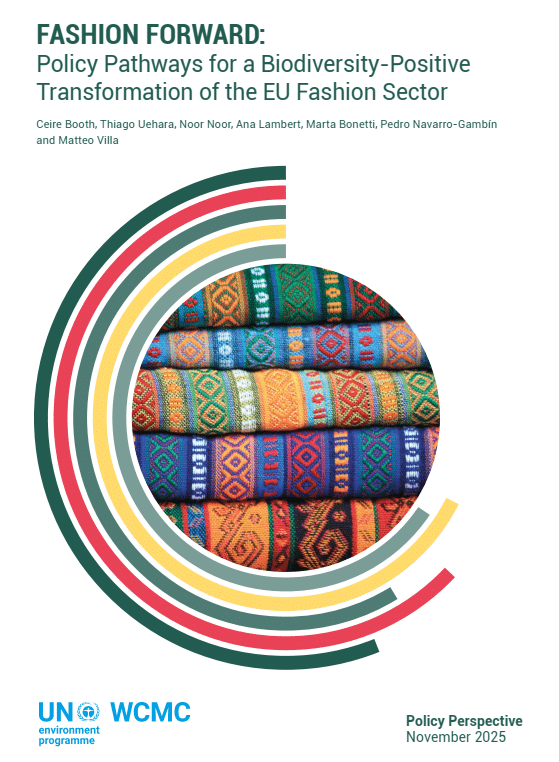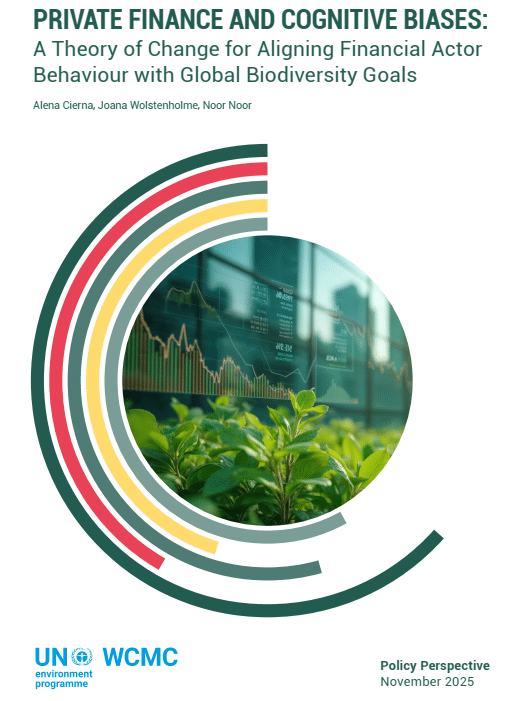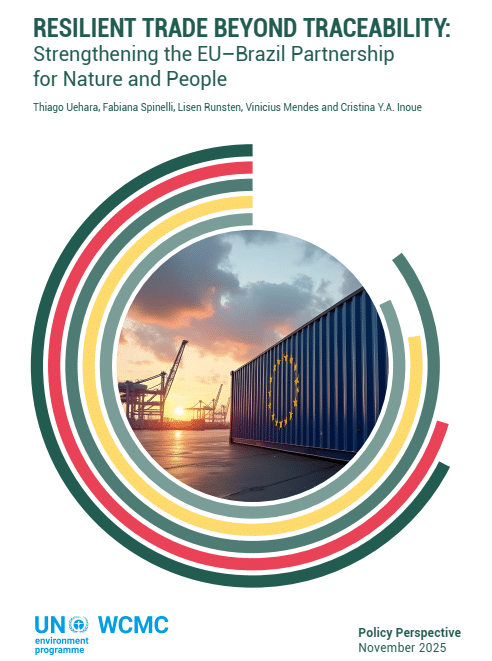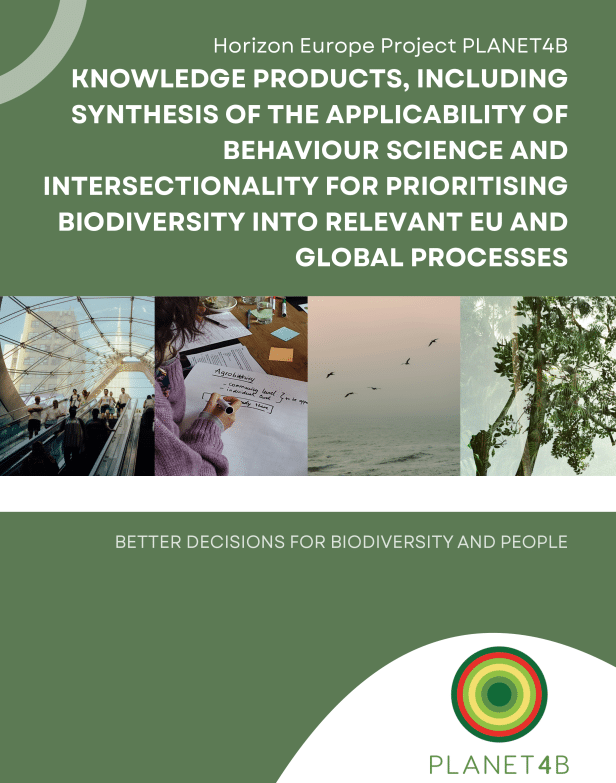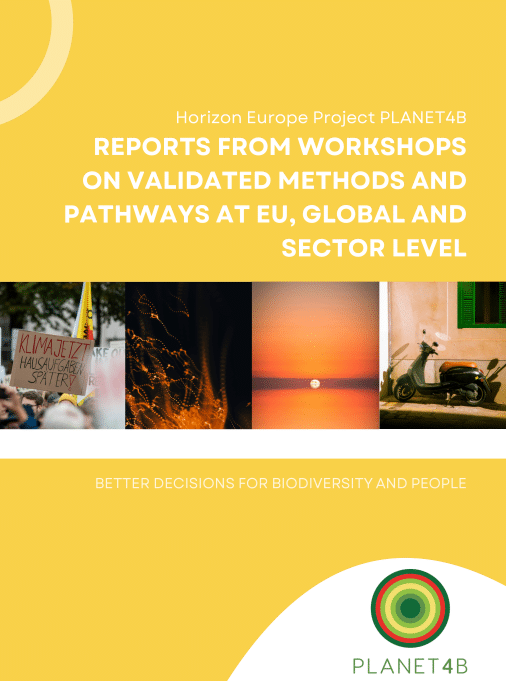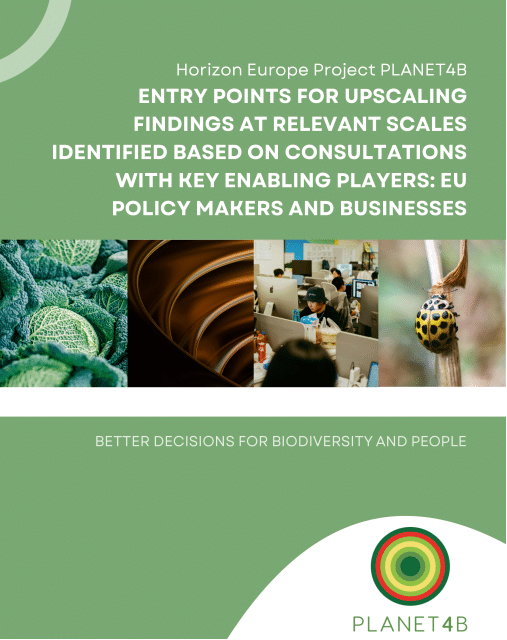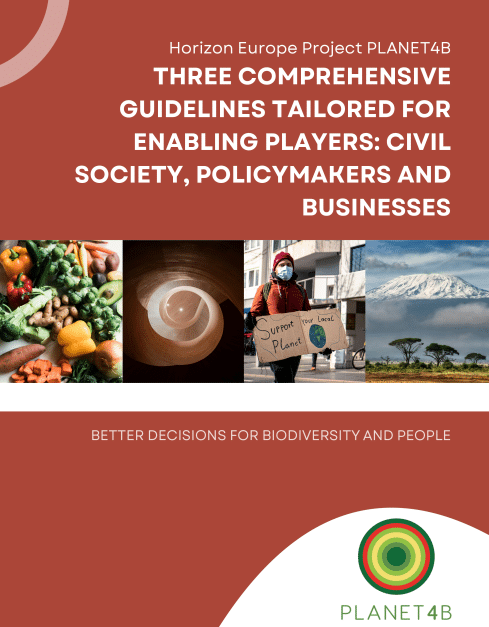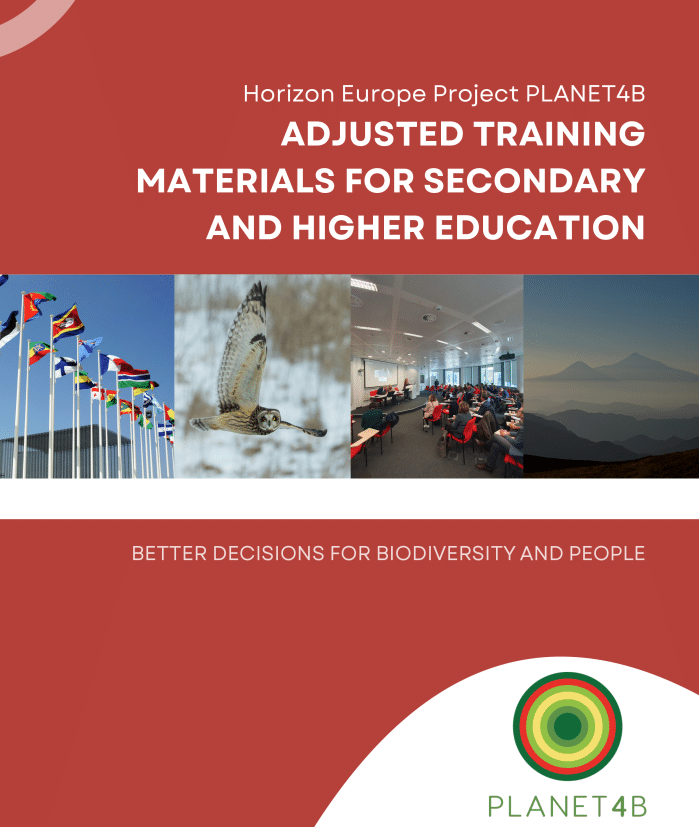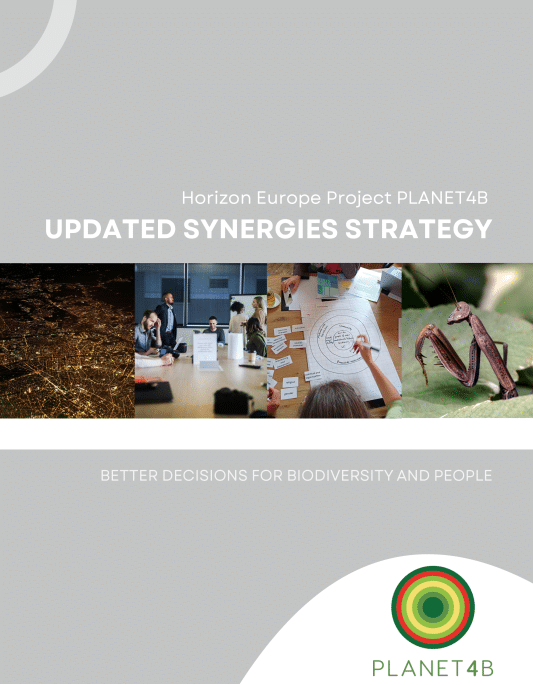Project documents
Read and download the materials, reports and publications developed throughout the project.
Latest documents
- brief PolicyResearch brief
Fashion Forward
Policy Pathways for a Biodiversity-Positive Transformation of the EU Fashion Sector
The fashion sector plays a significant role in the European economy and cultural identity. As a global trendsetter and one of the world’s top exporters, Europe’s fashion system, comprising the fashion, textile and apparel industries, shapes consumption patterns far beyond its borders. This global reach, however, carries significant environmental costs. The fashion sector contributes to [...]
- brief PolicyResearch brief
Private Finance and Cognitive Biases
A Theory of Change for Aligning Financial Actor Behaviour with Global Biodiversity Goals
Global biodiversity loss poses substantial risks to human well-being and economic stability. Yet, human activity has accelerated the decline in biodiversity to rates unprecedented in human history. Reducing the underlying drivers of biodiversity loss requires transforming the global economy. Financial institutions have a fundamental role to play in this transformation. Read our recommendations for policymakers [...]
- brief PolicyResearch brief
Resilient Trade Beyond Traceability
Strengthening the EU–Brazil Partnership for Nature and People
Ensuring that competitiveness and sustainability reinforce rather than undermine each other will be critical for long-term resilience in EU’s trading partnerships. Reducing dependencies on environmentally harmful and socially inequitable supply chains is essential to achieving such resilience, and for the global transition to sustainable trade
All documents
- Behaviour Biodiversity intersectionality PolicyResearch report
The IPBES Transformative Change Assessment (2024) makes clear, fundamental and systemic change is essential to reverse current trends of biodiversity crisis. It calls for a rethinking of how societies value and relate to the natural world, recognising that well-being, justice and care for the planet are interconnected dimensions of sustainable prosperity. PLANET4B addresses these implementation challenges through an integrated focus on plural values, behavioural change, intersectionality, leverage points and transformational change. [...]
- Behaviour Biodiversity intersectionality PolicyResearch report
PLANET4B recognises the critical role of policy and business actors as agents of change in reducing biodiversity loss and the importance of using collaborative methods to jointly identify solutions for reducing biodiversity loss. In this regard, the project hosted six workshops with representatives from research, policy and business to discuss, develop and validate a series of transformative pathways and transformative methods for improving the prioritisation of biodiversity in a range [...]
- Behaviour Biodiversity intersectionality Policy researchResearch report
This Deliverable is useful for policymakers and business actors who want to better understand how PLANET4B’s research can improve the prioritisation of biodiversity in policy and business processes. The findings in this Deliverable will also be useful to other Horizon Europe-funded projects involved in researching solutions for integrating biodiversity into policy and business processes.
- Behaviour Biodiversity intersectionality Policy researchResearch report
Central to PLANET4B’s approach has been the recognition that transformation is not the responsibility of one sector or actor alone. It requires the active participation of diverse enabling players – including civil society organisations, policymakers and businesses – who shape decisions, practices and priorities across scales. To support these enabling players, PLANET4B has developed three audience-specific guidelines, each tailored to the distinct roles, capacities and contexts of civil society, policy [...]
- Behaviour Biodiversity intersectionalityResearch report
This deliverable presents the development and testing of the PLANET4B Biodiversity Engagement Course for Educators. By providing educators in secondary and higher education with transdisciplinary training and teaching materials on biodiversity and the biodiversity crisis, the Course aims to build educators’ capacity to teach about these themes through systems thinking, intersectionality and creative and experiential learning, thereby inspiring students to take transformative action. The flexible, modular course builds on PLANET4B’s frameworks, case studies and engagement methods. [...]
- Behaviour Biodiversity intersectionality Policy researchResearch report
This Updated Synergies Strategy forms one of the deliverables of mapping synergies and creating cooperation with existing initiatives and projects led by UNEP-WCMC in the PLANET4B project. The purpose of this Updated Synergy Strategy is firstly to provide a review of progress in the implementation of the initial Synergy Strategy, and secondly to expand on possibilities for further collaborations with projects and initiatives beyond the lifetime of the PLANET4B project.

